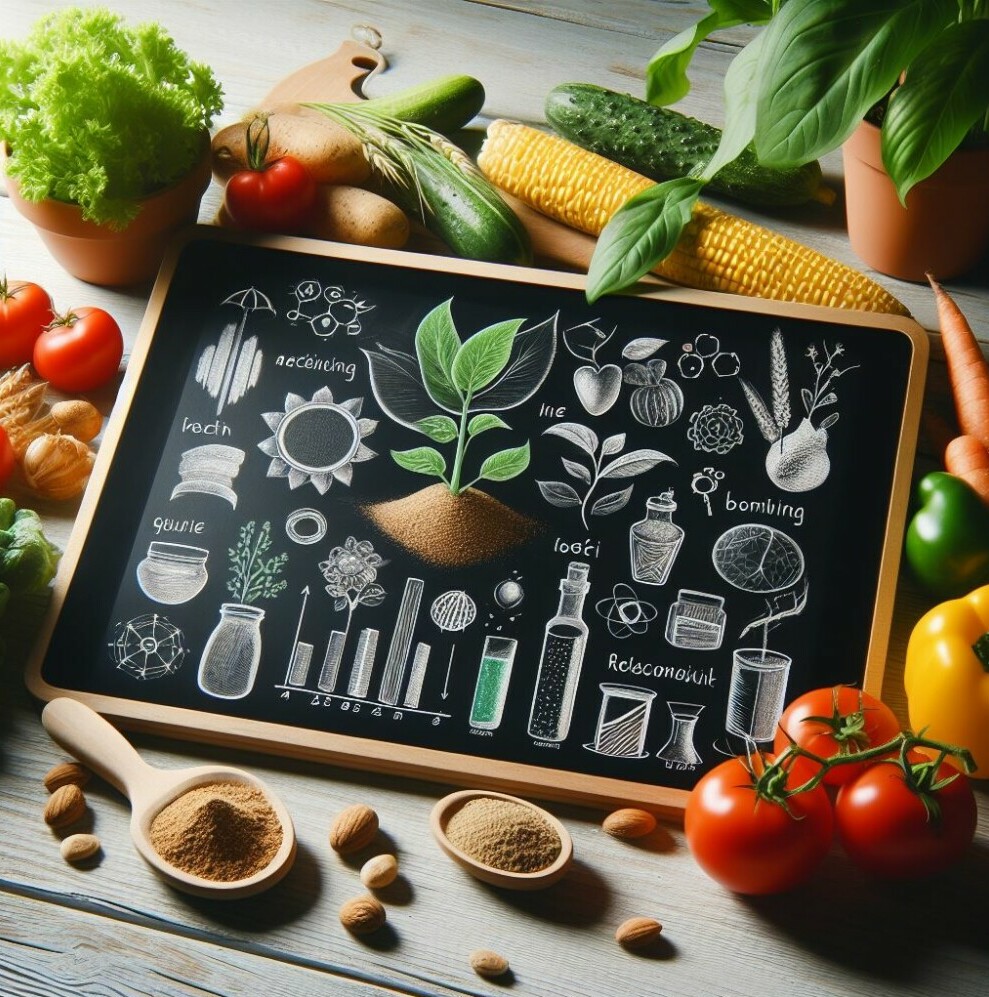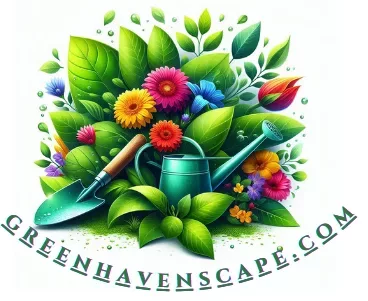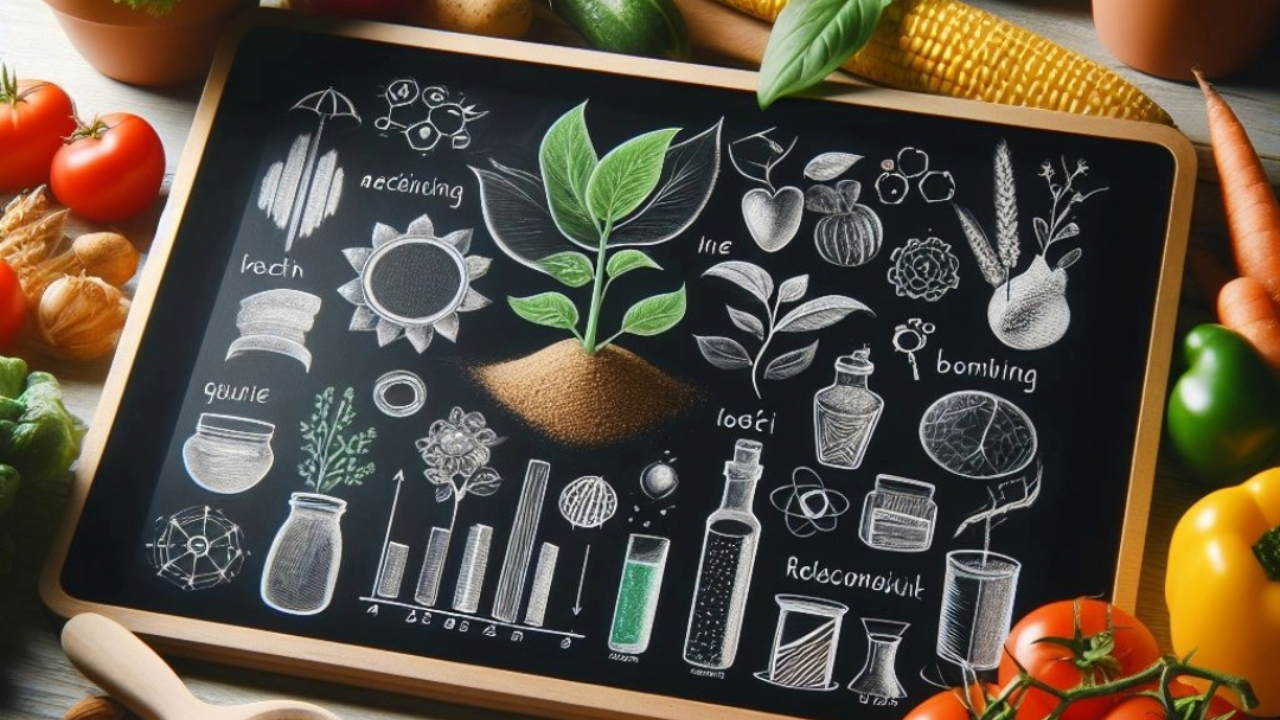
Organic gardening is more than just a method of growing plants; it’s a commitment to nurturing the earth without relying on synthetic inputs. This approach focuses on using natural materials, promoting biodiversity, and working with natural systems to foster healthy plant growth. As the world becomes increasingly aware of environmental issues and health concerns, organic gardening has surged in popularity, mainly due to its promise of sustainability and well-being.
You might notice more community gardens, a rise in farmer’s markets, or even your friends discussing organically growing their food. This isn’t just a fleeting trend. It reflects a global shift towards more eco-conscious living. By understanding the principles of organic gardening, including composting, natural pest management, and companion planting, you’re joining a movement that’s reshaping our connection to the food we eat and the environment we live in.
But here’s the thing: organic gardening isn’t just about what we avoid, like chemical additives. It’s also about what we gain—richer soil, diverse ecosystems, and a tangible sense of community. I’m here to help you understand how embracing organic practices in your garden can benefit you, your family, and the planet. And it turns out, the perks of organic gardening extend far beyond just cleaner food. It touches on our health fundamentally, which is precisely what we will explore in the next section.
Health Benefits: Nurturing Yourself and Your Family
I will discuss the significant health benefits of organic gardening for you and your loved ones. Avoiding the adverse effects of synthetic chemicals isn’t enough; it’s also about enjoying the positives of such a nurturing practice.
When you grow your food organically, you’re stepping away from depending solely on store-bought produce that might have been exposed to a cocktail of pesticides and herbicides. This can be crucial in shielding your family from potential health risks associated with these substances. In my opinion, that peace of mind is priceless.
But it’s not just about what’s missing from your food—it’s also what’s in it. Organically grown fruits and vegetables tend to have higher nutrient levels. These essential vitamins and minerals are what your body thrives on, and you’re going to find out about their importance for maintaining a healthy lifestyle.
Gardening is a physically active pursuit, but its benefits extend beyond mere exercise. It’s also a stress reliever. Imagine the tranquility of tending to your plants and the satisfaction of harvesting your crops—a form of meditation in motion. Plus, getting your hands dirty in the soil can improve your mood, thanks to beneficial bacteria that foster a unique connection with nature.
Lastly, don’t overlook the legacy you’re creating. By establishing organic gardening practices now, you’re setting an example and paving the way for future generations to understand the importance of clean, sustainable food sources. And that, in my book, is a compelling way to leave a mark on this world.
Environmental Impact: Cultivating a Greener Earth
You’ll learn how organic gardening extends its benefits beyond the confines of one’s backyard. It’s a significant player in the larger environmental field—think of it as a local action with global repercussions.
When you adopt organic methods, you’re opting for a game-changer for biodiversity. Natural, diverse gardens invite a variety of insects, birds, and wildlife, creating a thriving environment and promoting essential ecological balance.
If you’re concerned about soil and water—you should be—say goodbye to synthetic fertilizers and pesticides. These chemicals often leach into and contaminate our water sources. Organic gardening relies on compost, natural pest control, and heirloom seeds, nurturing the earth rather than depleting it.
I’m here to help you understand the benefits of climate change, too. Organic soil is a carbon trap—it seizes carbon from the atmosphere and locks it away. In practice, this means that by gardening organically, you’re directly contributing to carbon sequestration, which is vital in managing global warming.
In organic gardening, you avoid harm and actively restore the land. Encouraging native flora boosts local ecosystems and helps ensure pollinators, like bees and butterflies, have the resources they need to survive.
Now, all of these environmental wins queue us up nicely to tackle the economic and social angles next. Because when you support the planet, you’re also paving the way for more resilient, connected, and financially savvy communities.
Economic and Social Rewards: Thriving Communities and Personal Savings
I will wrap this up by touching on the less discussed yet equally important benefits of organic gardening: the economic and social perks. Starting an organic garden is brilliant if you want to cut down on grocery bills. Seeds and composting can save you a lot over store-bought, organic options.
But this isn’t just about saving a few dollars; it’s also about the ripple effect on our local economies. Buying seeds and plants from local organic growers supports family businesses and keeps your community vibrant.
You’ll discover that organic gardens are more than just plots of land. They’re hubs of communal activity, where neighbors exchange tips, seeds, and produce. Community gardens significantly strengthen neighborhood ties, enhance food security, and beautify urban spaces.
Choose something that resonates with you. Perhaps it’s contributing to a community garden or sharing your surplus harvest with a local food bank. These actions foster a sense of togetherness and civic engagement.
In my opinion, the real wealth of organic gardening lies not only in the delicious, healthy food it produces but also in the enriched lives of those who participate in it. So, my challenge to you today is to start small, maybe with a windowsill herb garden, and gradually expand. You might be surprised at how much you can save and contribute.
Thanks for joining me on this exploration of organic gardening practices. I’d love to hear your feedback on how you’ve embraced these methods or if you have any plans to implement them. Remember, your journey into organic gardening doesn’t just lead to a thriving garden and a more sustainable, connected, and fulfilling life. Let’s plant the seeds for a better tomorrow, one garden at a time.

